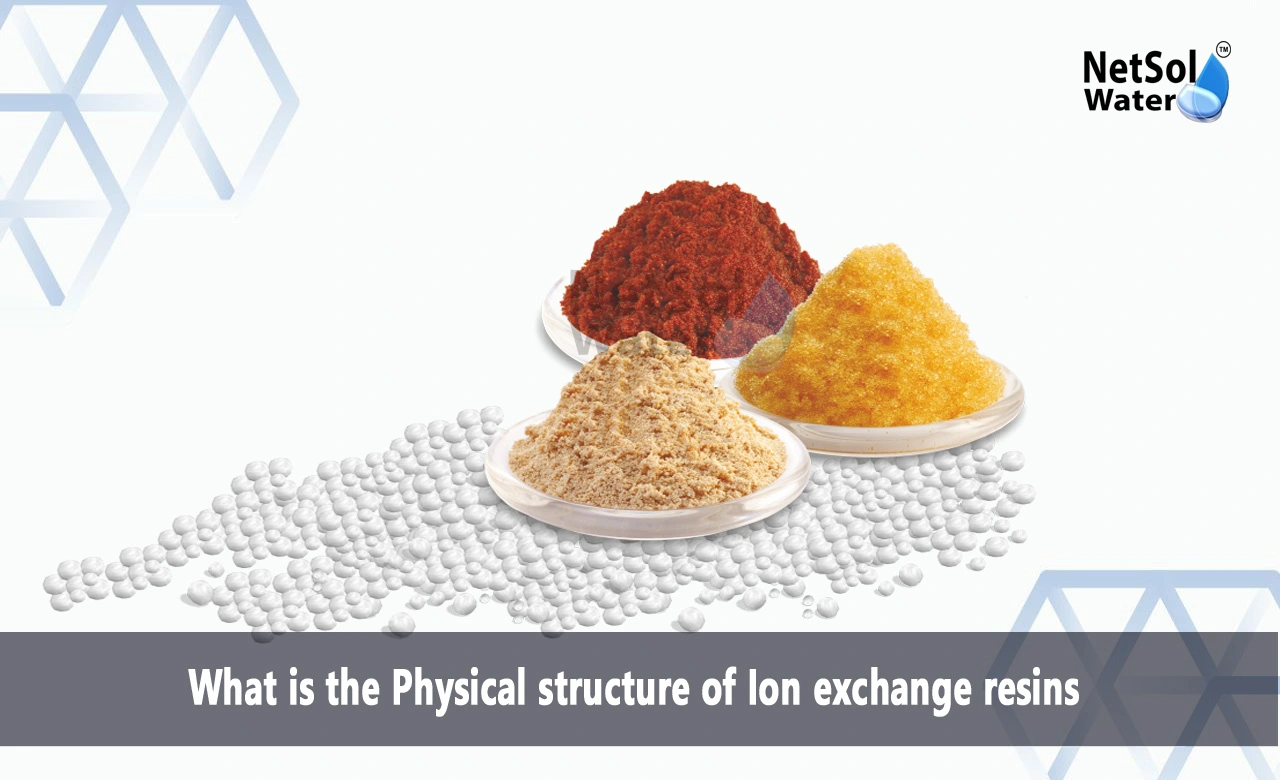What is an Ion exchange resin?
An ion-exchange resin, also known as an ion-exchange polymer, is a resin or polymer that serves as an ion-exchange medium. It isbasically an insoluble matrix (or support structure) created from an organic polymer substrate in the shape of tiny (0.25–1.43 mm radius) microbeads, generally white or yellowish. The beads are often porous, giving a wide surface area on and within them for the trapping of ions and the subsequent release of other ions, which is known as ion exchange. The resin comes in a variety of forms among which, Polystyrene sulfonate is the most common commercial resin.Separation, purification, and decontamination operations all involve ion-exchange resins. Water softening and purification are two of the most prevalent examples.
What is the Physical structure of Ion exchange resins?
Ion exchange is defined as the reversible exchange of ions between a solid and a liquid in which the solid's structure does not alter permanently. It is a separation mechanism utilized in numerous non-water processes as well as in water treatment. Chemical synthesis, medical research, food processing, mining, agriculture, and a number of other fields all benefit from it. The capacity to utilize and reuse the ion exchange material determines the usefulness of ion exchange.
The exchanger in the sodium ion form is able to exchange for calcium and thus, to remove calcium from hard water and replace it with an equivalent quantity of sodium. After that, the calcium-loaded resin may be regenerated back to sodium form with a sodium chloride solution, making it ready for another cycle of operation. The regeneration reaction is reversible, and the ion exchanger does not need to be replaced permanently. Thousands of litres of water per cubic metre of resin can be softened over a long period of time.
Gel and macroporous ionic resins are commonly the two types of categories.
1-Gel type ionic resins: When dried, the polymer skeleton of gel-type resin contains no holes. When it absorbs water, it expands and generates very thin pores between macromolecular chains, which are known as micropores. The wet resin's typical pore diameter is 2 to 4 nm (210-6 to 410-6 mm).
This type of resin is better at adsorbing inorganic ions because of its tiny diameter (0.3–0.6nm). This form of resin cannot absorb macromolecular organic compounds, such as protein molecules with a diameter of 5-20 nm, since they are too big to fit through the tiny pores of this type of resin.
2-Macroporous resins: It is formed by introducing exchange groups after adding a porogen during the polymerization procedure to form a porous sponge-like structure with a huge number of permanent micropores within. It has both micro- and macro-pores, and the wetting resin's pore size ranges from 100 to 500 nanometres. Its size and quantity may be modified throughout production.
Molecular adsorption may adsorb a variety of non-ionic compounds, such as activated carbon, and therefore broaden its use. Some macro-porous polymers lacking exchange functional groups may adsorb and segregate a range of compounds, including phenols in effluent from chemical plants.
The pores inside the macroporous resin are huge, the surface area is huge, the active centre is huge, the ion diffusion rate is rapid, and the ion exchange rate is 10 times quicker than the gel-type resin. When employed, it has a quick reaction time and high efficiency, reducing the amount of time required for processing.
How can we assist?
Professionals in the water quality business can provide more extensive assistance and specialized recommendations when it comes to selecting the proper water treatment for residential, commercial or industrial IX Resins. Netsol Water products and solutions can provide the water your plant requires at every stage!
Our professionals will check the customer's location first, then explain the available options and thus allow you to select what is best for your property. You can always find useful information by liking and following us on YouTube and LinkedIn.
For further inquiries or product-purchase-related questions, give us a call at +91-9650608473 or email at enquiry@netsolwater.com.



